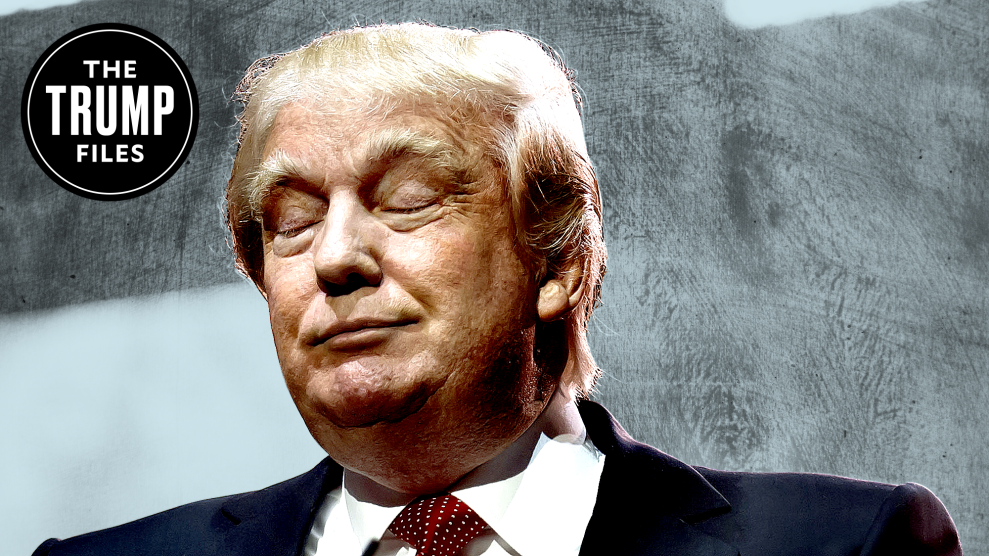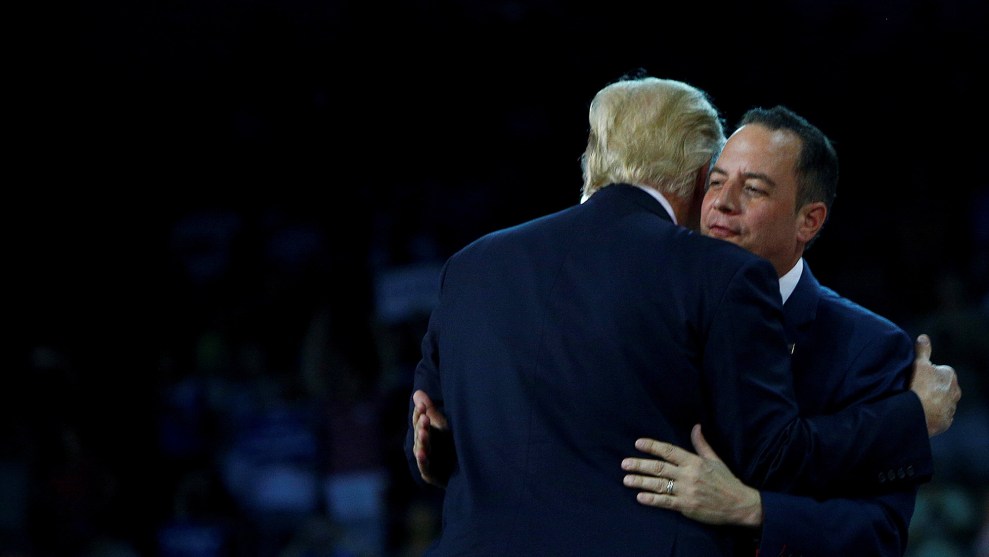
Mother Jones Illustration/Shuttershock
This post was originally published as part of The Trump Files—a collection of telling episodes, strange but true stories, and curious scenes from the life of our current president—on September 26, 2016.
Donald Trump’s career was built on help from his father, Fred, whether it was the years Trump spent managing his dad’s apartment building or the political connections and multimillion-dollar loan guarantee that made cash-strapped Donald’s first deals possible. So it’s no surprise that Fred tried to bail his son out of trouble when Donald’s Trump Castle casino in Atlantic City, New Jersey, was about to miss an interest payment in December 1990.
By then, Trump had already defaulted on the debt from his Taj Mahal casino. If Fred simply wrote Donald a check, the money would be used to pay off that debt. So, as the Washington Post‘s Michael Kranish and Marc Fisher describe in their new book, Trump Revealed, the elder Trump sent a lawyer to the Trump Castle to sneak money straight into the ailing casino’s coffers.
The lawyer, Howard Snyder, approached the casino cage and handed over a certified check for $3.35 million, drawn on Fred’s account. Snyder then walked over to a blackjack table, where a dealer paid out the entire amount in 670 gray $5,000 chips. The next day, the bank wired another $150,000 into Fred’s account at the Castle. Once again, Snyder arrived at the casino and collected the full amount in 30 more chips.
That let Trump use the de facto loan in whatever way he needed. “Sure enough, the Castle made its bond payment the day Fred’s lawyer bought the first batch of chips,” Kranish and Fisher wrote. The tactic also had a nice financial benefit. “Not only did he avoid default on the bonds—and the risk of losing control of Trump Castle as a result—but patrons who hold gaming chips normally are not paid interest,” wrote the Philadelphia Inquirer at the time.
New Jersey’s Casino Control Commission investigated the chip purchase the following year and said it was an illegal loan that broke the state’s rules about casinos receiving cash from approved financial sources. The Inquirer wrote that a casino lawyer told the paper that “Fred Trump is ineligible for licensing, and Trump Castle should be required to return the money, a move that would almost certainly force it into bankruptcy court.” In the end, the casino kept the money and the commission fined the casino the relatively small amount of $65,000. But it didn’t save Trump. A year later, the Trump Castle went into bankruptcy, and Donald gave up half the casino to his creditors.















